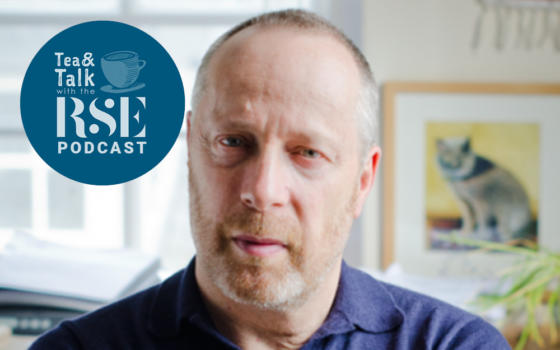Expertise and the Popular Will
Facing the Covid-19 pandemic, political leaders have claimed to ‘follow the science’. And scientific experts have had a prominent role in recommending significant changes in public policy and individual behaviour. However, science doesn’t directly tell us what to do. It presents evidence-based hypotheses about why something is happening and what will happen if various decisions are implemented. This means that our political leaders and individuals in the public at large have had to bring values to bear in deciding which courses of action to pursue.
This kind of situation leads some to pit expertise against the popular will. Michael Gove famously said that ‘people in this country have had enough of experts.’ He later qualified these comments, but they exemplify an anti-elitism about scientific expertise that is growing in our political culture. As measures to slow the pandemic have taken an increasing toll on jobs, education, recreation, travel and everyday liberties, some members of the public have also become increasingly frustrated with what they see as the draconian recommendations of well credentialed experts. On the other hand, other members of the public and some public health officials have become increasingly frustrated with what they see as governments’ and fellow citizens’ failure to take the scientific predictions seriously.
We don’t, however, have to think about expertise and the popular will as pitted against each other in this way.
Instead we can think about expertise not in terms of knowing specific facts or having certain credentials, but rather in terms of a distributed capacity to form and test hypotheses based on experience. Expertise shouldn’t be viewed as oracle advice issued from ivory towers but rather as the opinions of fellow members of the public who are especially knowledgeable about particular topics. Indeed, each of us is an expert about various topics, whether through advanced study, personal investigation or lived experience. And we can think about the popular will not in terms of the aggregated preferences of individuals, each with their own understanding of issues of common interest, but rather in terms of an ongoing mutual attempt to live together in light of complex and only partially understood facts.
If we think of expertise and the popular will in these ways, the question we should be asking is not about which one will be ‘victorious’ or even ‘right’ about each particular issue. Rather the question we should be asking is about how best to integrate the expertise that is distributed throughout our community, in order to develop provisional collective plans in light of our shared values.
Responsible public debate has a dual function in this integration.
First, by its very nature, expertise is often incomplete. No one knows everything that is relevant to important public policy decisions, and relevant information is often difficult to distribute widely amongst the public. So, public debate should be seen as an opportunity to pool knowledge and broaden public understanding of relevant information. Second, while expertise can and should feed into public debate, we should not view it as some sort of unchallengeable verdict. Instead, expertise from a range of sources should be brought together and critiqued in collaborative ways to improve our shared understanding of the challenges we face.
This kind of inclusive public debate based on expert hypotheses offered in a spirit of intellectual humility usually results in joint views that are better than where any of us started individually.
Since 2019, I have been working with the Young Academy of Scotland to develop a charter of principles for responsible public debate. The idea for the project is that our society will collectively improve democratic decision-making by reflecting on and seeking to follow the principles underlying constructive contributions to debate about contentious issues of public policy. In some tacit sense, most people already know what these principles are. But various features of the political culture of contemporary democracies (social media, echo chambers, polarization, memeification) can make it difficult to follow these principles. Moreover, various features of ordinary human psychology (tendencies to rely on quick heuristics, implicit biases, groupthink) exacerbate the difficulty. This erodes our confidence that we discuss political issues as part of an ongoing mutual attempt to live together in light of complex and only partially understood facts. Pitting expertise against the popular will is one major symptom of this eroded confidence.
This blog is a successor of an article first published in the Scotsman and related to a similar blog by Alice König for the Young Academy of Scotland’s Covid Blog. Peter McColl and John O’Connor have also been working closely with us on the project.
This article was written by Matthew Chrisman, Professor of Philosophy, Member of the Young Academy of Scotland, and Member of the Public Debate & Participation working group.
